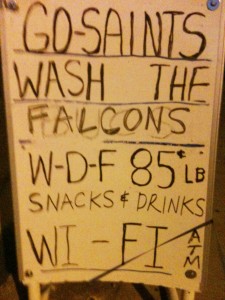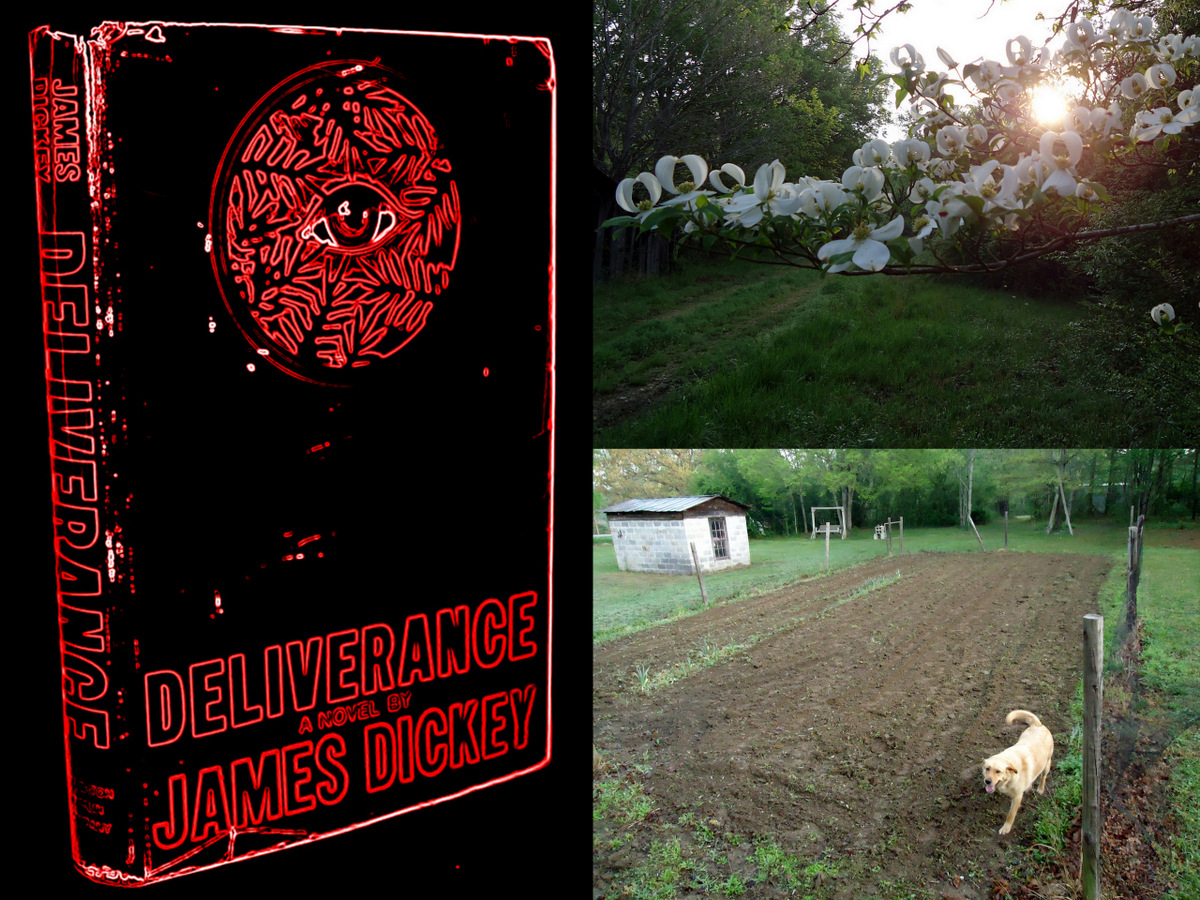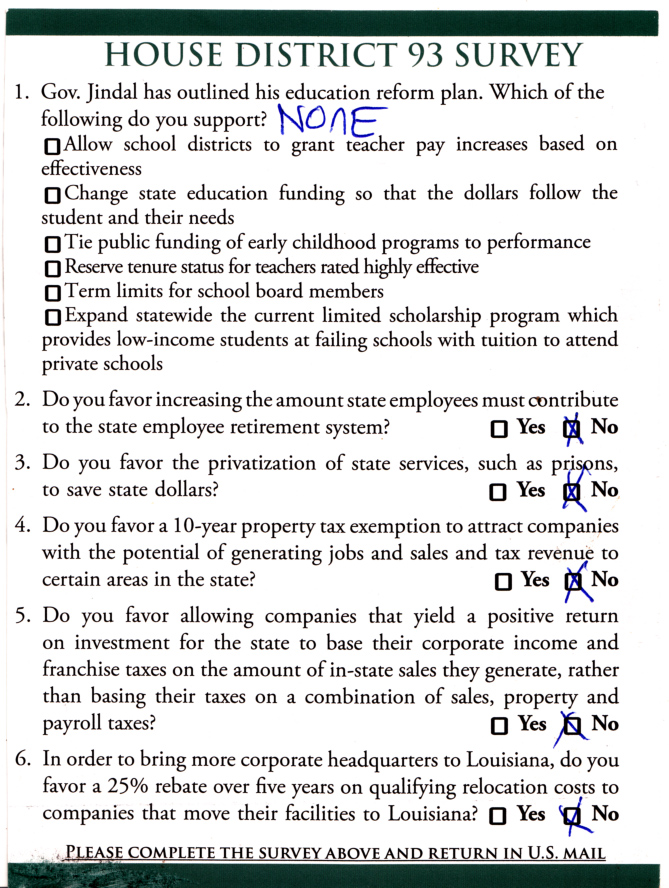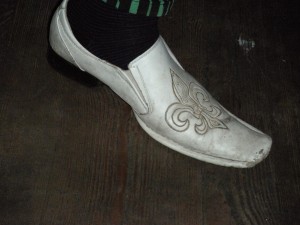“A 17-year-old has been arrested in the shooting of a 13-year-old boy who was caught in crossfire…
New Orleans

John Edwards at a podium in the Ninth Ward on January 30, 2008:
I began my presidential campaign [in New Orleans] to remind the country that we, as citizens and as a government, have a moral responsibility to each other, and what we do together matters. We must do better, if we want to live up to the great promise of this country that we all love so much.
Some songs are in our DNA. I think. I was at French Quarter Fest and over the…
For the last eight years, I’ve lived on a farm in rural Alabama.
In the movies, when city people arrive in the country, all kinds of funny, wacky things happen.
The other Hollywood default, of course, is best typified by John Boorman’s film of James Dickey’s tremendous 1970 novel, Deliverance. (Dickey’s cameo as a redneck lawman is superb. Watch for it near the end of the movie.)
Before I became a resident of Coburn Mountain, it was college towns and big cities. Culture and nightlife were always around the corner, or a short drive away. As a writer and musician, I never had to look far for work or inspiration.
More importantly, wherever I went I made new friends. I enjoyed the estimable pleasures of belonging to a community of people who also appreciated the thrill of walking the thin line between soul-crushing poverty and bohemian splendor.
It took me a while to figure out how to be happy here on the farm. I might as well have parachuted into the Amazon basin.
When you’re used to living life at a certain tempo and volume, peace and quiet can be disorienting, daunting. Complete solitude requires a kind of mental toughness I’d never had to cultivate.
After a year on the mountain, I was ready to leave. I’d always wanted to live in New Orleans, and my NOLA friends made sure I knew the welcome mat was out.
So one sunny weekend in August of 2005, I loaded up about half of my worldly possessions and delivered them to the Uptown apartment of an ex-girlfriend, who had graciously offered me a place to stay during the transition.
I returned to the farm to finish packing. I wasn’t in a hurry. I felt like I’d already pulled the trigger. I was doing something I’d done a dozen times before, picking up, moving on. C’est la vie. Despite New Orleans’ semi-deserved rep as a cruel banana republic, I knew I’d find a way to make it there.
Check out this video my friend Trey Deark shot of the Hot 8 Brass Band circa 2002-03. If I remember correctly, the Hot 8 were playing at a party for someone in Mystical’s family. If you know the Hot 8, you know you’re going to dig these 6 minutes, 17 seconds. The rest of you, you’re invited to join the party.
Please hit the “like” button on our Friends of St. Roch Tavern Facebook page and write a…
They call him Red. He’s a rooster that’s claimed as his territory the block of Washington Avenue…
I don’t remember whose grandmother it was I went with Graydon to help fix a leaky tap….
Coco Robicheaux passed away Friday evening. Much has been written about the man, his music, his artistry, his character and his seemingly mythical background. Much more will be written. Many of us spent yesterday between tears and laughter, blaring his music through our homes to let him know we’re here thinking about him. I double checked my files to be sure that I hadn’t lost the 40 minute live set I recorded on my phone at Mimi’s a couple months ago. I regretted never having given him the eagle feather I had told him I’d bring when I saw him next. I remembered that the ancients believed there is a four day window between the time the soul leaves the body and its transition to the higher realms. I’ll have to light a candle for him today so he sees it along the way.
Fringe Fest is this week, which you no doubt know unless your head has been under a rock. As usual, I scoured the list of shows, then culled them, then arranged them by time and location. It’s a difficult process given so many interesting offerings. Several pieces really stood out and one I was determined not to miss started off last night at NOCCA with Never Fight a Shark in Water.
To say it was moving is to understate things. To say it was strong is still weak. What I saw was nothing short of the personification of sheer will, faith and optimism walking around in front of me in the person of Greg Bright.
To give you some background, in 1975 Greg Bright, then 20 years old, and Earl Truvia, 17, went to bed one night in the Calliope Projects. Later that night with the requisite banging on the door and shouted threats to open up, Greg was arrested for the murder of a 15 year old boy. After a Kafka-esque trial including an incompetent court appointed attorney, withheld evidence, testimony against him by a paid schizophrenic heroin addict testifying under a false name due to her own criminal record he was convicted and sentenced to life in prison. Did I mention that he and his co-defendent, Earl Truvia, didn’t even know each other?
 I fear the management team at the Black & Gold Wash & Fold has grown complacent.
I fear the management team at the Black & Gold Wash & Fold has grown complacent.





